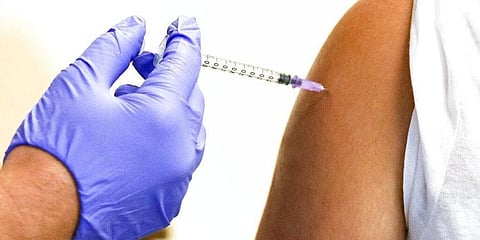

NEW DELHI: Days after favouring a booster dose of COVID-19 vaccine for people above 40 years, the country's top genome sequencing laboratories on Saturday said their recommendation was not for the national immunisation programme as many more scientific experiments are required to assess its impact.
In a bulletin issued on Saturday, the Indian SARS-CoV-2 Consortium on Genomics (INSACOG) said the mention of the booster dose in its previous bulletin was merely a "discussion about the potential role of additional dose of Covid-19 vaccines in high-risk populations".
"Many more scientific experiments are needed to assess the impacts of booster dose, which are being guided and monitored by National Technical Advisory Group on Immunization (NTAGI) and National Expert Group on Vaccine Administration for COVID-19 (NEGVAC)," said the INSACOG bulletin dated December 4.
It also made it clear that the recommendations and suggestions regarding vaccines, schedule, and roll-out came under the expressed mandate of NTAGI and NEGVAC.
Health Minister Mansukh Mandaviya had told the Lok Sabha on Friday that a decision on booster doses and vaccines for kids would be taken on the basis of scientific advice and that the focus of the vaccination drive would be to expand the coverage of the second dose.
During the debate in the Lok Sabha on the Covid pandemic, several lawmakers had suggested a booster dose of COVID-19 vaccines for the elderly, immunocompromised and healthworkers who work in high-risk environments.
NTAGI is likely to meet next week to assess whether there was adequate data on waning immunity, where the effects of the vaccine wear off over a period of time.
In its bulletin dated November 29, the INSACOG had said vaccination of all remaining unvaccinated at-risk people and consideration of a booster dose for those 40 years of age and over, first targeting the most high-risk / high-exposure may be considered.